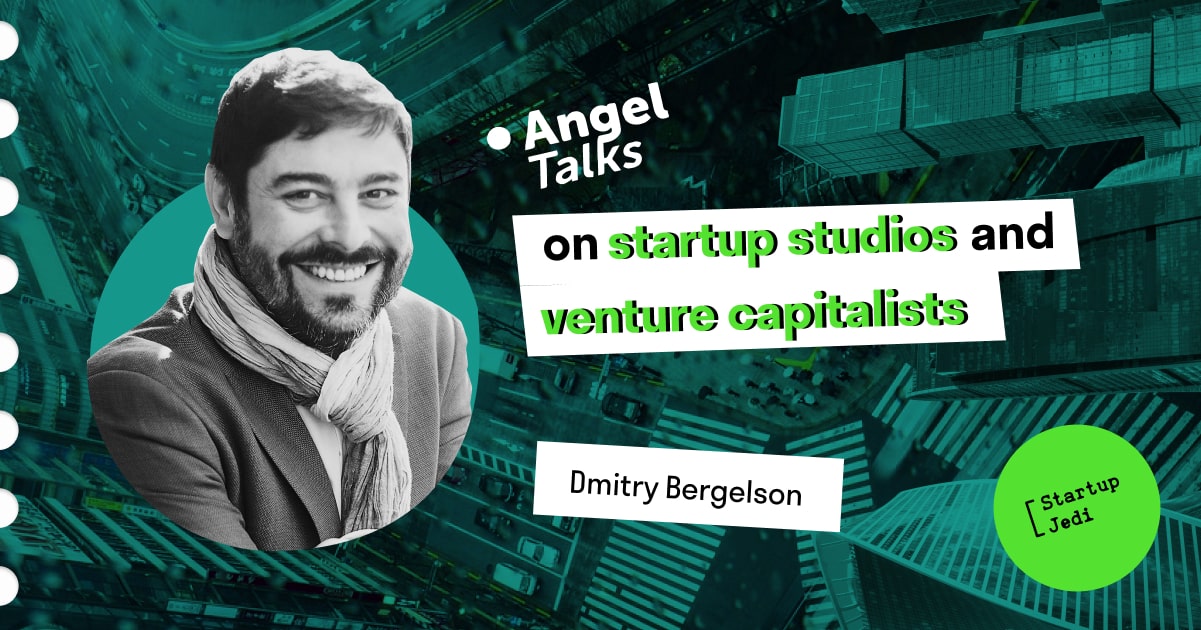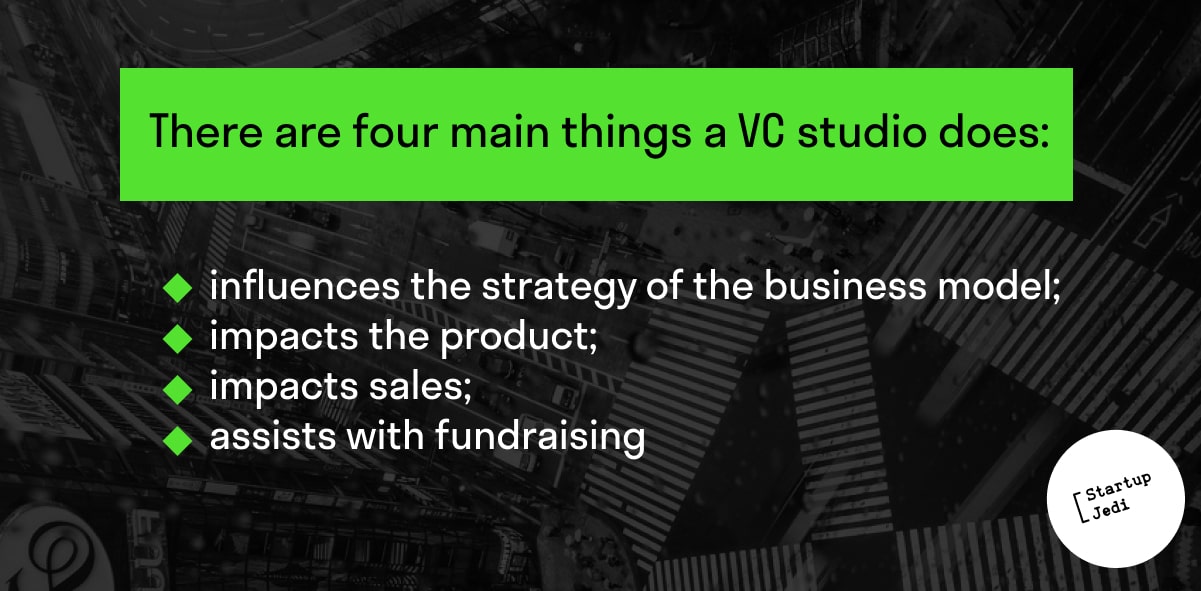
Startup Jedi
We talk to startups and investors, you get the value.
In the Angel Talks and Rusbase special we are going to talk about start-up studios. These are companies that take part in creating and launching startups.

Startup Jedi
We talk to startups and investors, you get the value.
Interest in venture capital studios is growing and is attracting more and more investors. Dmitry Bergelson, the founder of the INNORETAIL retail technology venture studio and the Holmes&Moriarty consulting company, shares his experience of creating a venture builder.

I have many native industries. I started in the IT business in a large company, where I worked in the Internet and telecommunications direction for seven years. In 1997 I made the country's first commercial connection via a dedicated line, and then I went into the mobile business. Later, in the international company Iriver, which was the first to invent digital players based on flash memory, I was responsible for businesses in the former USSR region.
Having dealt with the consumer electronics market, my partner and I decided to set up a company in this area. He used to be the director of business development at X5 Retail Group and he was also engaged in all possible kinds of startups, from independent experiments to teaching at the SKOLKOVO Startup Academy and courses for investors.

The management system in venture capital has changed dramatically over the past 25-40 years. This is due to the amount of capital managed and people involved in this management. In general, people are less willing to take risks, while the volume of funds increases. The risks, respectively, are perceived as higher, which leads to a decrease in profitability, but an increase in reliability. At the origins of the industry were mature businessmen who had experience working in corporations or in their own business and made decisions based on the side of the business. Many fund managers studied finance, came from finance, but never worked in the real sector. This significantly improves the quality of financial decision-making, but it also means some intangible things from the point of view of real business are left unnoticed.
When an investor is perceived only as a source of money, this is an inevitable evil for a startup. Against the background of the growing competition for good deals, venture capital funds have only one tool to win: raise their valuation, raise their check. This dilutes the bottom line. On the one hand, risk appetite is decreasing, and so is profitability, on the other, there is competition.

Value can only be created if you understand something well and act accordingly. There are just two things you can understand well: the industry and some technology. The funds become not only a source of money, but also a source of competence. Today there are a lot of horizontal funds that help with staff recruitment and PR. At the same time, there are very few companies that specialize in vertical markets and look only in a narrow vertical. Retail & Consumer was my home market, so the obvious choice was Retail & Consumer Tech.
Besides experience, I had other arguments when choosing a sphere:

Later, we plan to also start helping with PR, since the clients of our portfolio companies are corporations and retail companies. PR as a marketing tool is very effective, but startups do not always know how to use it, so we plan to add it.

There is, yes. When I got involved in this activity, I considered myself a startup builder, but recently I reconsidered what I do and started using a different terminology.
Venture builder is a way to create companies that:
Venture studios is when a professional co-founder enters with a share of 5% to 20% and ideally does not invest money at all, but develops, creating value in the areas of their expertise. Any investor here is a partner, not a competitor. The studio is open to cooperation with any investors in order to not only give them a funnel, but also work with these companies in the future. The venture studio model not only ensures high-quality selection, but also reduces risks and increases upside.
It must be said that investors are divided into two categories: the former listen to experts, the latter are guided by the trend. The former are more entrepreneurial, the latter more traditional and financial. The difficulties that the venture capital industry can experience due to declining profitability will lead to the emergence of more and more new forms of venture capital organizations capable of creating added value. For example, combining a venture studio and a venture investor is a very promising model.
— How do you choose projects and come up with ideas?
— I have been doing this for four years. For the first two I ran through pitch sessions, listened to startups, shared what I was doing, and we started doing something together. Some startups came from my friends. For the last two years, my funnel has been forming on its own, because there seem to be no other startup studios in the Retail & Consumer Tech niche. They send me pitch decks, and then the process is similar to the one in a venture capital fund.
— How do you work further, on what conditions?
— The key point is that I have to know I’m helpful. If I understand that they need help, but they do not hear me or have some other difficulties, this is not good. There should be a complete match. There are other criteria as well, including:
— How does the venture studio model differ from the advisory model?
— According to the criteria, they are very similar and do not differ if a large amount of work is required from the advisor. An adviser is always a private person, while venture studios are organizations with a lot of people.
— What is the ownership structure? Are you a shareholder or are you co-founders?
— Yes, we get from 5% to 15%. If the company is at a later stage, we make money on options in the next round.
— Do you work only in the Russian market? What is your priority: international or Russian companies?
— It’s not just the Russian market, we have a company in Germany. We prioritize companies with Russian-speaking roots that can become international, with a valuation of one billion.


In the ideal model, startups should start paying at some point. In order for this to happen, they need to gain enough speed and funding. The main income of the studio, of course, comes from the exit. The ideal goal is to make the company so international that the output is international. It is advisable to separate Russian and non-Russian business. The Russian exit will be much closer, even if it will not be worth a few billion, but it will not burden the company with difficulties, like an international one. The international exit will take time, but it will also bring a much higher profit.
— How many projects can you physically manage? What is your greatest accomplishment in your builder studio?
We now have ten companies. In order to take the next step, you also need to upgrade the infrastructure. As of our success stories, we raised money to a company at an early stage with a capital of $ 15 million. Another company doubled its capitalization in six months, and in a year it almost quadrupled.
Venture studios will continue to acquire their capital for investment or merge with venture capital funds to form funds with high added value.

Facebook: facebook.com/StartupJedi/
Telegram: t.me/Startup_Jedi
Twitter: twitter.com/startup_jedi
Comments